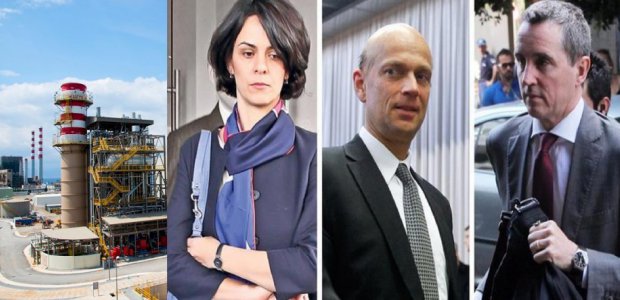The energy-sector measures required at this stage of the country’s bailout program have been agreed on except for certain fine details, to be examined today at a meeting between energy minister Giorgos Stathakis and creditor representatives, back in Athens to resume talks for the second review’s conclusion.
The government has already agreed to the sale of 40 percent of main power utility PPC’s carbon-fired capacity, including mines, well informed sources have noted.
A market test is planned for September to determine the level of interest of investors. If the investor interest in the utility’s carbon-fired units, old and new, is subdued, and, in addition, the progress of state-controlled PPC’s market share contraction targets is deemed to be insufficient, then hydropower units operated by the utility will also be added to the sale package.
Greek officials will seek to limit the capacity of units to be sold by contending that a considerable proportion of the utility’s carbon-fired production capacity will be withdrawn over the next few years, as a result of age and the EU’s greenhouse gas targets. Therefore, the capacity of PPC’s production capacity to be sold could be reduced to less than 40 percent.
Legislative revisions for the number and content of PPC units to be sold are planned for December this year, while the sale process is slated for June, 2018.
A review of PPC’s market share contraction progress, scheduled for June, is unlikely to convince lenders that the utility is on track for a retail electricity market share of 75.24 percent by the end of this year. To get there, the utility needs to shed a further 12 percent from its current market share.
The two sides have agreed to limit potential buyers of PPC units to firms already active in Greece’s electricity supply market.
They have also agreed to maintain NOME auctions, introduced last October to offer independent traders access to PPC’s low-cost carbon-fired and hydropower sources, until the target model is implemented. Also, as demanded by the European Commission, one of the country’s three lenders, electricity amounts to be offered at the NOME auctions will be successively increased through a compounding system. Electricity auction amounts offered each preceding year will be added to the following year’s amount. As a result, PPC will need to offer 20 percent of its output in 2017 and 33 percent in 2018. From then on, amounts are expected to fall as it is anticipated PPC will have sold units and cut its production capacity.
Buyers of PPC’s carbon-fired power stations will also be required to offer electricity amounts to NOME auctions. This measure is expected to prevent uneven competition between enterprises that have bought PPC production units and ones that have not.
Greek energy authorities will also need to update public service compensation (YKO) figures concerning previous years.
The lenders, especially the European Commission, also want DEPA, the Public Gas Corporation, to end its involvement in the country’s EPA gas supply firms.
An attempt by Greek officials to transfer a 17 percent share of PPC from the TAIPED state privatization fund to a superfund, intended to offer state assets a chance of improving their business performance ahead of privatization, appears unlikely to succeed.
The Greek State would maintain 51 percent control of PPC if privatization of the 17 percent stake of the utility currently under TAIPED’s control is avoided.





